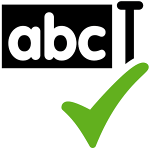Resume Grammar Mistakes to Avoid
 Avoiding grammar mistakes on your resume is an important part of professional writing. Here are some common grammar mistakes that people make all the time. Take a sufficient amount of time to go through and proofread your work; fixing these blunders will go a long way toward improving the results of your job search.
Avoiding grammar mistakes on your resume is an important part of professional writing. Here are some common grammar mistakes that people make all the time. Take a sufficient amount of time to go through and proofread your work; fixing these blunders will go a long way toward improving the results of your job search.
Resume Grammar Mistakes to Avoid
The English language can be tricky. You can make mistakes that don't seem to be incorrect. Even the autocorrect function can fail to pick them up because you spelled the word correctly, but you used the wrong form. To eliminate these tragic errors and to give yourself a better chance of getting a job interview, we provided a list of errors and corrections below. You can now comb through your resume and cover letter, to eliminate the problems that you may have with your grammar.During the job application process one thing that will get your resume ignored quickly is making a grammatical or spelling error. In the age of autocorrect and with computers practically completing our sentences for us, even the simplest of grammatical rules have become lost.
Spellcheck isn't always your friend; sometimes, it will erroneously correct your words. Moreover, because a red or blue zigzag line doesn't appear underneath your words, you must't assume they are correct. The purpose of this article is to teach you how to spot some common resume grammar mistakes that can pop up in your professional portfolio. Then find out how to avoid them by learning what they are and how to fix them.
Career Help Center
Resume Grammar Mistakes to Avoid
Some of these grammar problems happen to the best writers out there and with a bit of hard work and education, you will learn to spot them and correct them in no time. Then you will be seriously considered when you apply for a job.- Homophone Mistakes
One of the easiest mistakes to make involves homophones because all these words sound the same, but are spelled differently and have different meanings. You must take these mistakes seriously because if a recruiter catches one of these you could say goodbye to your interview.
Here are some examples of common problems involving homophones:
- Your vs. You're
Your: possessive, meaning that you are explaining that something belongs to someone. An example would be “Is this pencil mine? No it's your pencil.”
You're: a contraction (two words shortened into one) meaning you are. An example of this use is “You're getting the hang of this.” - Too vs. To
Too: meaning additionally, use this form when you would have otherwise used the word also. An example is “I like writing poems too.”
To: a preposition that can be used to describe a location, and more. Using this in a sentence would be like “I am going to write my name now.” - Their vs. There vs. They're
Their: the possessive form of the word, used when describing possession of the word they. An example is “I like their work that they do at the company.”
There: Referring to a location. An easy example can be “Look over there.”
They're: Yet another contraction, this time a contraction of the words they are. Use this as a replacement for that, for example “They're looking into hiring me soon.”
- Your vs. You're
- Use of Apostrophes
Apostrophes are useful to indicate certain instances of possession and pluralization. However, when used incorrectly the literate reader can become extremely confused by your writing. The various ways of using apostrophes are as follows:
- Indicate Possession: When you add an apostrophe s ('s) onto a word you are indicating possession. When you adjust the word to s apostrophe (s') you are also indicating possession, but you are stating that there is more than one object possessing something.
- Shortening Years: When you add an apostrophe in front of two numbers you are stating a date, mainly the year. For example '05 means the year 2005.
- Contractions: as we have seen earlier contractions are two words put together to form one, and with the help of apostrophes they are successful. They're means they are, note the apostrophe in the middle.
- Tense and Parallelism
Keeping a consistent tense is incredibly important no matter what you are writing. Your writing can start to become confusing if you are switching back and forth between the past and present. Unless you are describing a specific instance in the past, try to write in specified tenses appropriate for what you are describing.
Another major issue that people often get wrong is when they are dealing with lists. Parallelism is making sure that all elements of lists match.
Here is an example of a parallelism mistake:
“When you go to write a resume make sure that you check grammar, spelling, and go through proofreading it.”
Here is what the sentence should look like as it is now grammatically correct:
“When you go to write a resume make sure that you check grammar, spelling, proofread.”
You will notice how the sentence flows and isn't as awkward after the parallelism mistake has been corrected.